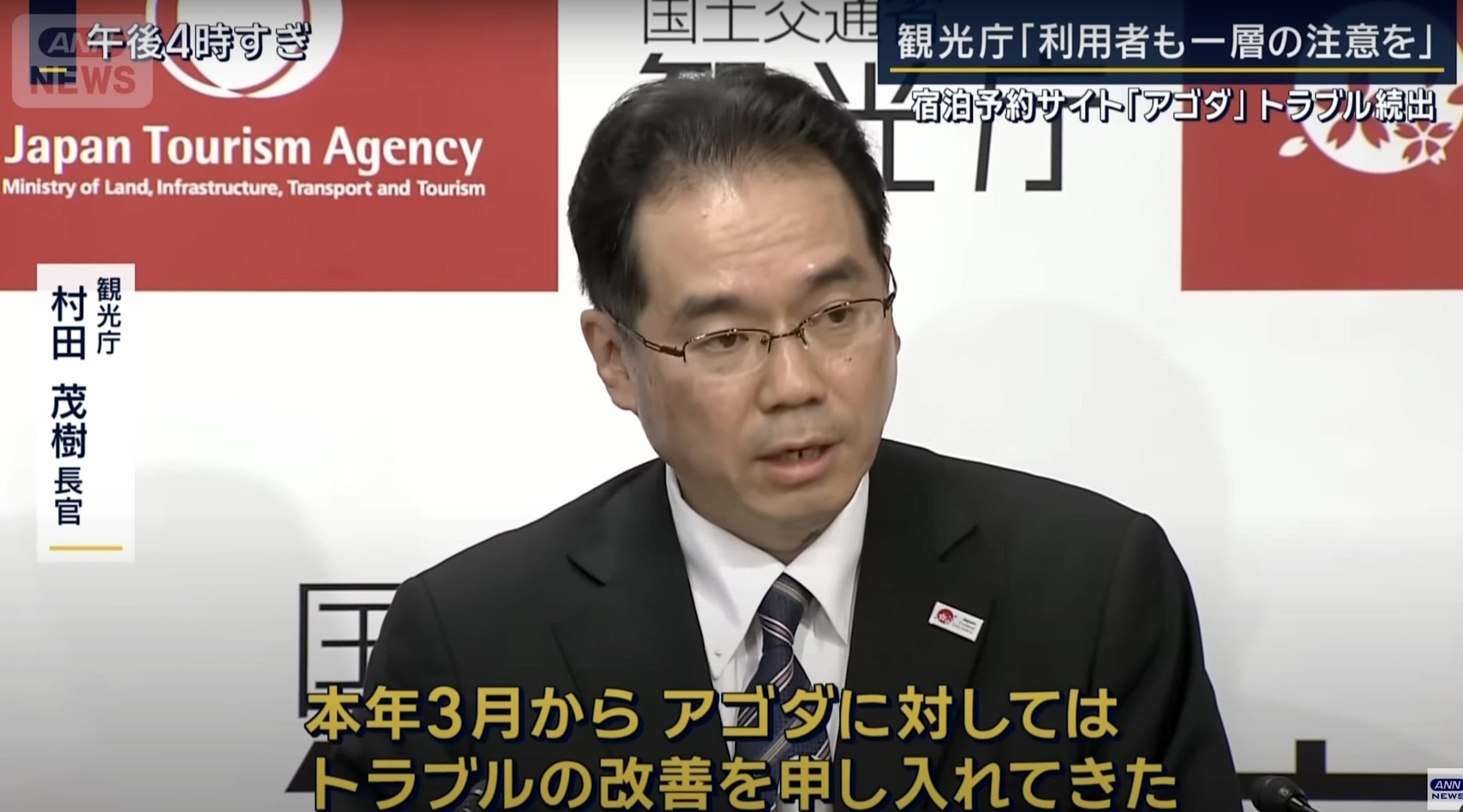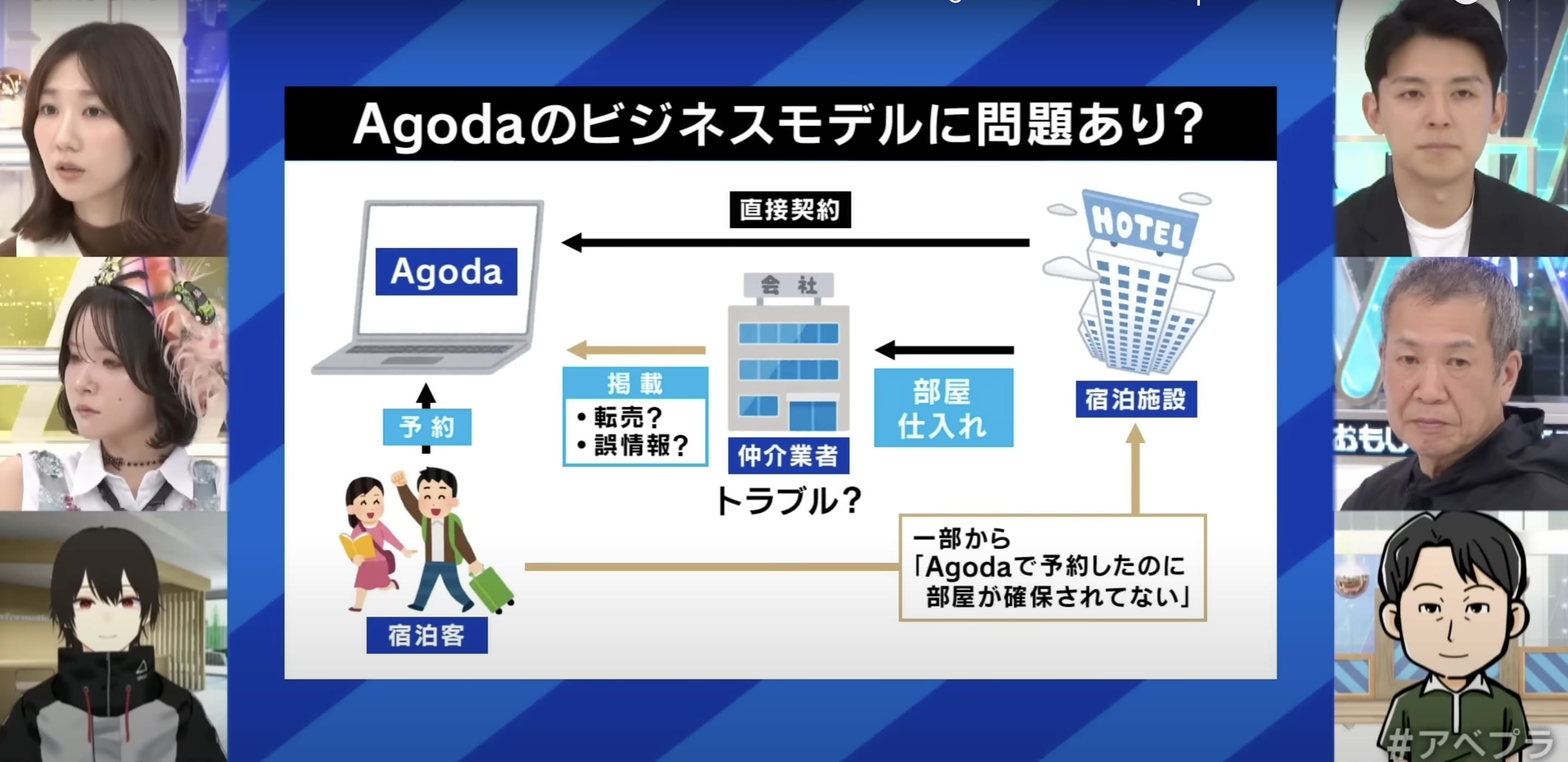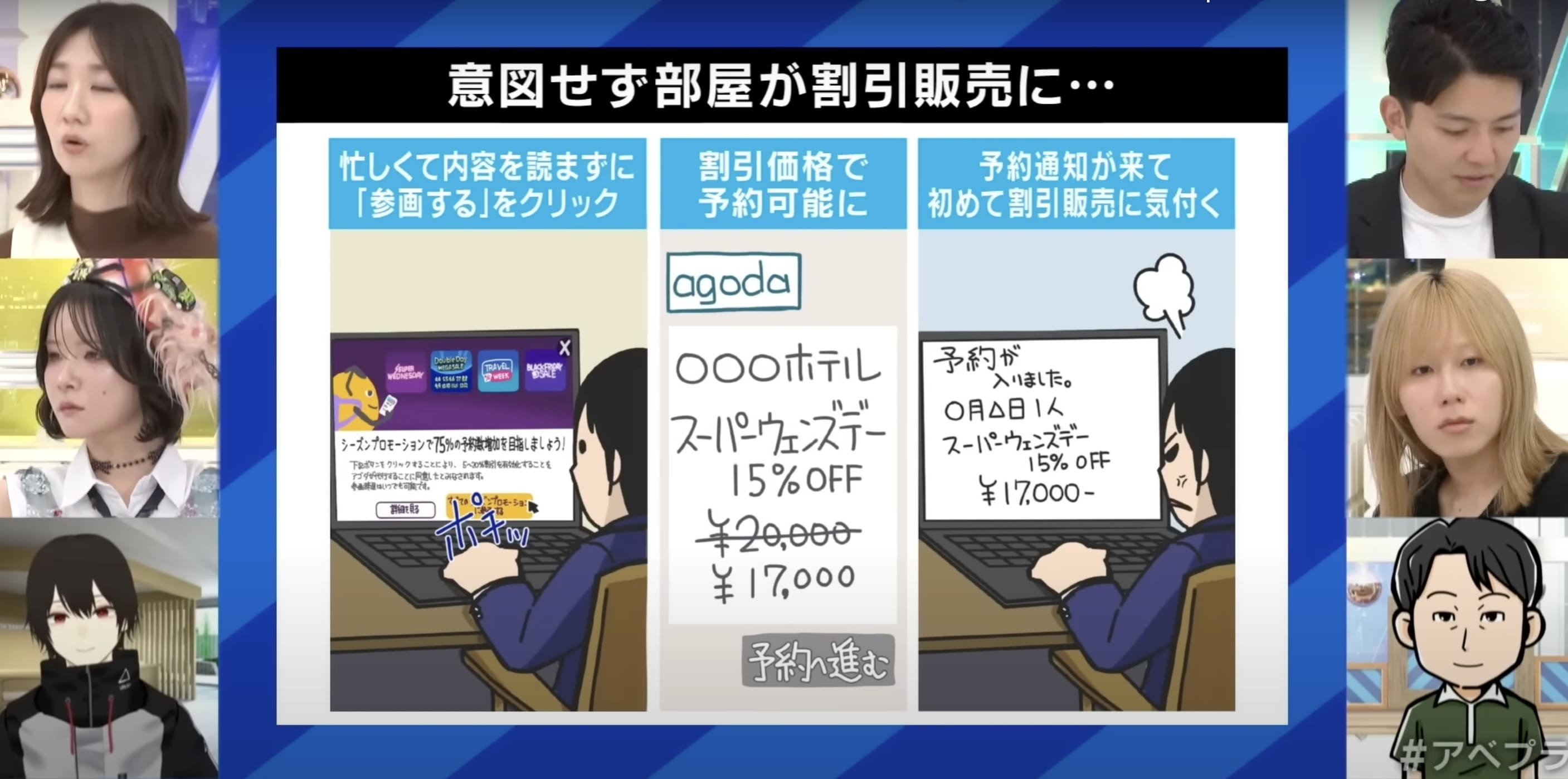
Travelers must be very cautious when booking hotel rooms in Japan on Agoda. This year, many travelers found that the hotels they booked on Agoda had no available rooms upon arrival, and some did not even find their names on the hotel's list, turning their trips into nightmares.
The media found that unscrupulous third-party agents use false online low-price temptations to lure consumers into placing orders, but travelers only discover upon checking in at hotels that there are no rooms available or that the prices and room types do not match, exceeding the booking amount. Additionally, issues such as misleading photos of room types and credit card fraud have left travelers furious.
The hotel booking website Agoda has faced multiple complaints from travelers, raising widespread concern in Japan's tourism industry. Japan's Tourism Agency Director Shigeki Murata publicly pointed out on the 16th that Agoda has a series of operational issues, directly naming and criticizing the need for improvements, but received a cold response. Below is a translated report.
Local and foreign travelers have been continuously complaining.
Travelers from Japan and abroad have reported to Japan's Tourism Agency that the hotel rooms booked through Agoda often have problems. For example, some travelers confirmed their orders online but found upon arriving at the hotel that there were actually no available rooms, and the hotel had no record of their booking, or that the booked room type was vastly different from what the hotel actually provided, with prices not matching what was displayed during booking, leaving travelers confused and dissatisfied.
A traveler from Yokohama recalled booking a single room for 13,000 yen on Agoda, only to receive a phone call on the day of booking informing him that the room had been canceled and he could not check in. In the end, he had to choose a different hotel at a higher price, leaving him confused and disappointed.
Japan's Tourism Agency demands Agoda to improve.
Since March of this year, Japan's Tourism Agency has received a large number of complaints about Agoda from travelers. Agency Director Shigeki Murata pointed out that these issues have affected many domestic and international travelers visiting Japan. Due to the continuous problems, Japan's Tourism Agency has requested Agoda to improve and highlighted the need to enhance customer protection measures.
Agoda subsequently responded, stating that it would stop cooperating with some third-party agents and plans to roll out a series of improvements in the coming months to ensure that all third-party agents meet standards.
Third-party agents are the root of the problem.
Why does Agoda frequently encounter problems? Aviation and tourism analyst Kotaro Toriumi explained that in Japan, hotels and booking sites share information about available rooms to ensure real-time updates. However, Agoda not only cooperates directly with hotels but also works with many third-party agents who book rooms at low prices and then sell them to consumers at higher prices. Sometimes, these agents do not confirm the actual status of the rooms with the hotels in advance, leading to completely incorrect information.
Kotaro Toriumi pointed out that some unscrupulous agents, in order to profit from the price difference, will post information about available rooms on Agoda even before confirming that the rooms are actually vacant. This practice may lead to customers completing their online bookings, only to find that they did not actually secure a room, or that the room type and price offered by the hotel are completely inconsistent with what was displayed during booking.

Toyoko Inn criticizes poor operations affecting performance.
The well-known Toyoko Inn hotel group in Japan believes that these issues have far-reaching effects on the hotel industry. The group's executive director Chiyo Nakazawa stated that when customers arrive at the hotel and find that their rooms have not been booked or that the room types and prices are inaccurate, it results in a poor experience for them. Furthermore, some rooms listed on Agoda are priced higher than the standard prices set by the hotels, and the cancellation policies are unclear, making it impossible for refunds, which causes anxiety among consumers. Many travel websites see annual sales growth, but operators are not ensuring protection for consumers, and similar problems may become more frequent.

How can consumers prevent being taken advantage of?
How can consumers avoid similar situations? Experts suggest that travelers should pay special attention when booking, proactively contacting the hotel to verify that the order is successful after confirmation. If they still feel uneasy, the safest way is to book directly on the hotel's official website to avoid the risks associated with intermediary platforms.
Agoda is a Singapore-registered accommodation booking website that offers over 6 million hotels, flights, and travel booking services worldwide, supporting 39 different languages. The issue of fraudulent third-party agents scamming travelers on Agoda is not only happening in Japan; hotels and travelers in Taiwan also frequently fall victim. Many small and medium-sized hotels do not understand how to promote themselves online and rely on third-party agents for operations. These agents sell hotel rooms with false information, leading to complaints from travelers, causing hotels to lose money, and receiving negative reviews, allowing bad agents to profit significantly. Moreover, some agents act in collusion with fraud groups, selling fake vacancies and stealing consumers' credit card information, resulting in even greater losses. Now, during the peak tourist season, it is crucial to be extra careful when purchasing tickets and hotels online to protect one's rights and safety.
This article on frequent incidents of third-party agents scamming travelers through online bookings and Japan's Tourism Agency's criticism of Agoda first appeared in Chain News ABMedia.
